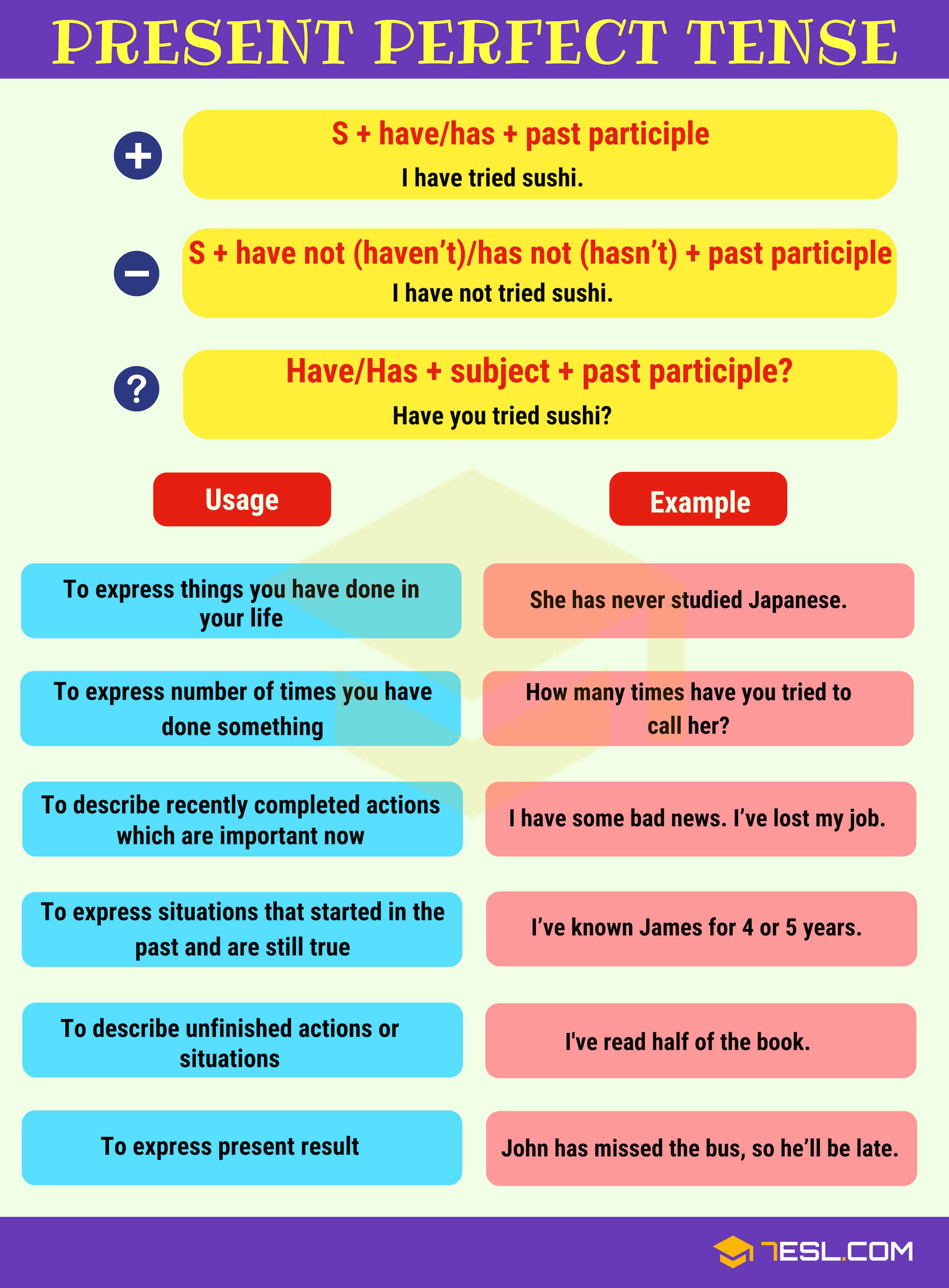Let's start with a new tense!!!
Present Perfect
We use this tense for unfinished and finished actions.
Unfinished Actions
1. We use this tense when we want to talk about unfinished actions or states or habits that started in the past and continue to the present. Usually we use it to say 'how long' and we need 'since' or 'for'. We often use stative verbs.
- I've known Luisa since 2001.
- I've worked in that company for nine months.
- She's lived in Australia for three years.
We use 'since' with a fixed time in the past (1994, last year, March 3rd). The fixed time can be another action, which is in the past simple (since I was at school, since I arrived).
- I've known Sam since 2005.
- I've liked milk since I was a child.
- She's been here since 4pm.
- I've known Julie for ten years.
- I've been hungry for hours.
- She's had a cold for a week.
Finished Actions
2. Life experience. These are actions or events that happened sometime during a person's life. We don't say when the experience happened, and the person needs to be alive now. We often use the words 'ever' and 'never' here.
- I have been to Tokyo.
- They have visited Paris three times.
- We have never seen that film.
- I haven't seen her this month.
- She's drunk three cups of coffee today.
- I've already moved house twice this year!
- NOT:
I've seen him yesterday.
- I've lost my keys (so I can't get into my house).
- She's hurt her leg (so she can't play tennis today).
- They've missed the bus (so they will be late).
- The Queen has given a speech.
- I've just seen Lucy.
- The Mayor has announced a new plan for the railways.
Is it difficult!!!!!!
Take it easy and continue !!!!

| To have a better understanding !!!! |
Video
Present Perfect Exercise 1
Present Perfect Exercise 2
Present Perfect Exercise 3
No hay comentarios:
Publicar un comentario